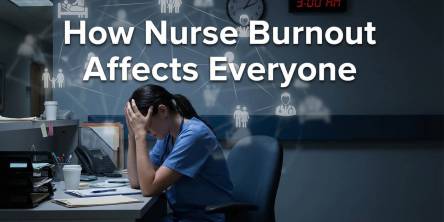The Impact of Individual Therapy in Substance Abuse Recovery

Substance abuse is a complex and multifaceted issue, impacting millions of individuals and their families worldwide. Recovery is a challenging journey, one that often requires a comprehensive treatment approach. Among the various interventions, individual therapy stands out as a cornerstone of effective substance abuse treatment. This blog explores the crucial role of individual therapy in the recovery process, highlighting its benefits and how it integrates with other treatment modalities.
The Essence of Individual Therapy in Recovery
Understanding Individual Therapy
Individual therapy is a form of psychotherapy where a patient and a trained therapist engage in one-on-one sessions. The therapy is tailored to the unique needs of the individual, addressing not just substance abuse but also underlying issues such as trauma, depression, anxiety, and other co-occurring disorders. This personalized approach fosters a safe space for individuals to explore their thoughts, feelings, and behaviors related to substance use.
Benefits of Individual Therapy in Substance Abuse Recovery
1. Personalized Care: Each person's journey to recovery is unique. Individual therapy provides a tailored treatment plan that addresses specific needs, challenges, and goals.
2. Developing Coping Strategies: Therapists help individuals develop healthy coping mechanisms to manage stress and triggers, crucial for sustained recovery.
3. Enhanced Self-Understanding: Through therapy, individuals gain insights into the underlying causes of their addiction, fostering deeper self-awareness and facilitating healing.
4. Building a Therapeutic Alliance: A strong, trusting relationship with a therapist can significantly enhance motivation and commitment to recovery.
Integrating Individual Therapy with Other Treatments
Successful substance abuse treatment often requires a multi-faceted approach. Individual therapy is most effective when combined with other treatment modalities such as group therapy, medication-assisted treatment, and support groups. This integrated approach ensures a holistic recovery, addressing all aspects of an individual's well-being.
Real-Life Impact: Success Stories and Evidence
Numerous studies and real-life accounts attest to the transformative power of individual therapy in recovery. Evidence suggests that individuals who engage in regular therapy sessions have higher success rates in maintaining sobriety and improving overall quality of life.
Finding the Right Support: The Role of Rehabilitation Centers
Choosing the right rehabilitation center is crucial for a successful recovery journey. Facilities known for their comprehensive care, such as a reputable drug rehab center, offer a range of treatment programs, including individual therapy, conducted by experienced professionals. These centers provide the necessary support and resources, ensuring individuals have the best chance at recovery.
Exploring Treatment Modalities Beyond Individual Therapy
Individual therapy is crucial in substance abuse recovery. It's also important to consider broader treatment options. Effective recovery often requires a combination of interventions. These include group therapy, medication-assisted treatment, and support groups. Integrating these modalities ensures a holistic approach. It addresses diverse aspects of an individual's well-being.
Realizing Transformative Outcomes: Evidence and Success Stories
Many studies and real-life stories show that regular therapy sessions impact recovery. Evidence suggests that participating individuals have higher success rates in maintaining sobriety. They also improve their quality of life. Looking at these success cases can teach us a lot about the efficacy of a holistic approach to recovery. It includes individual therapy and other proven methods.
Choosing the Path to Healing: Selecting the Right Rehabilitation Center
The recovery journey cannot overstate the significance of selecting an appropriate rehabilitation center. Choose facilities known for their comprehensive care, such as reputable drug rehab centers. They ensure access to a variety of treatment programs. These programs offer vital support and resources. They include individual therapy led by experienced professionals. Choosing the right rehabilitation center is pivotal. It provides individuals with optimal conditions for a successful recovery.
Conclusion
The road to recovery from substance abuse is a challenging yet rewarding journey. Individual therapy plays an indispensable role in this process, offering personalized care, support, and strategies necessary for a successful recovery. By integrating individual therapy with other treatment modalities and choosing the right rehabilitation center, individuals battling substance abuse can embark on a path to healing and a future free from addiction. As we continue to understand and embrace the importance of individual therapy, we open doors to more effective and compassionate recovery journeys for countless individuals.
Similar Articles
Discover the benefits, challenges, and future of locum medical jobs. Learn how locum recruitment agencies support flexible, diverse career opportunities for healthcare professionals seeking dynamic work environments.
Burnout in the healthcare environment is a significant and growing crisis.
NAD+ therapy restores cellular energy, enhances metabolism, and promotes anti-aging by supporting DNA repair and improved overall vitality.
Seasonal Affective Disorder (SAD) is a type of depression linked to seasonal changes, most commonly seen during the late fall and winter months when sunlight exposure decreases
Enhance sleep comfort and support with a mattress topper queen. Discover how the right topper improves pressure relief, temperature control, and rest.
If your mind refuses to be quiet the moment your head touches the pillow, welcome to the club. Overthinking at night has silently become nearly synonymous with modern forms of insomnia.
Discover how longevity clinics use key biomarkers to assess ageing, improve health, and guide personalized wellness strategies for a longer, healthier life.
Halitosis, sometimes known as foul breath, affects millions of individuals worldwide and can cause humiliation, influencing everyday interactions and confidence.
In the modern world, maintaining good health often feels like a constant challenge. Between busy lifestyles, sedentary habits, and lack of motivation, many people find it difficult to stay consistent with exercise, diet, or wellness practices.









